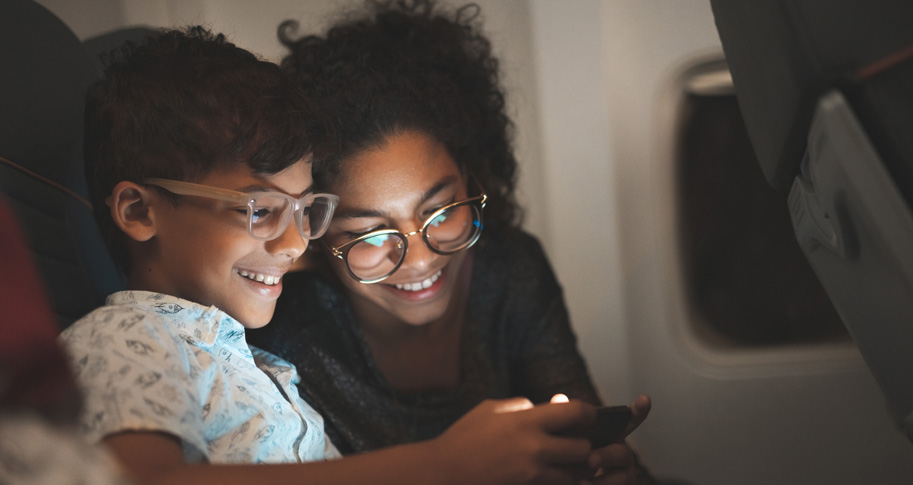
I remember my first time stepping into an airplane as a kid and being mesmerized by
the entire process: The rush of cold air hitting me, the cordial flight attendants,
and the glowing city outside the window.
That was nearly 15 years ago, and now the airline industry is struggling to keep afloat. After the pandemic, people are returning to their regular routines, and the demand for air travel is
steadily rising. However, airlines cannot meet these demands, and the rates of flight
cancellations are increasing daily. Major airlines such as JetBlue, American Airlines,
and Delta recently canceled almost 10% of their weekend flights.
Service failures are a big problem for airlines as they can result in disloyal customers
and negative word-of-mouth publicity. As air travel revives, the industry should critically
consider how to keep their passengers content and be willing to choose them again. In “Expectations vs Experience: Managing the Adverse Effects of Service Failures on
Customer Satisfaction in the Airline Industry,” University of Arkansas’ Associate Professor Adriana Rossiter Hofer, PhD Candidate Nicolò Masorgo, Lehigh University Assistant Professor Saif Mir, investigate how different airlines’ service failures impact customer satisfaction.
In addition, they look at how two traditional airline expenditures—advertising and
flight personnel salaries— shape the relationship between service failures and customer
satisfaction.
Expectation vs. Experience: How Passengers Really Judge Service Failures
The research is based on 15,979 passengers’ online ratings, as well as financial and
operations airline data from the Department of Transportation. It primarily draws
from the Expectancy Disconfirmation Theory (EDT) that is widely used in the service sector to explain customer satisfaction. The difference
between expectations and experience is called disconfirmation and can either be positive
(experience exceeding expectations) or negative (experience does not meet expectations). EDT
predicts that a positive disconfirmation leads to happy customers, while a negative
disconfirmation hinders customer satisfaction.
Whether people are flying for business or for pleasure, passengers have a few basic
expectations, which are set before they even step on the plane: timely arrivals, correct
baggage handling, and safely reaching the destination. According to EDT, any service
failure, like not being able to board a flight or getting delayed, will create a negative
disconfirmation because it is highly contrary to expectations. Indeed, passengers
usually expect to save time by selecting air travel. Many people will prefer the higher
cost of airplane tickets to spending 10 hours in a car. Therefore, getting bumped
from a flight significantly shape the passenger’s experience in a negative way.
Upon the analysis of the online ratings, the researchers found that the dissatisfaction
for arrival delays and getting bumped was higher than for mishandled baggage. They
argue that this result is probably because passengers will still arrive at their destination
regardless of whether their bags are there or not. Moreover, bags should be recovered
that same day or quickly thereafter. Airlines also will provide a type of compensation for the inconvenience.
The Risky Effects of Advertising
Marketing and advertising are integral components of a business strategy. The purpose
of marketing and advertising is to enhance brand image and attract new customers.
In 2021, US airlines spent a combined $760.6 million in advertising, indicating its importance as a tactic.
To combat negative experiences that result from service failures, airlines look for
other ways to influence customer satisfaction, including investing in advertising.
However, advertising can have negative effects when expectations are not met by the
experience. For instance, JetBlue Airways advertised their superior service in 2019,
but were ranked eighth against all US airlines for one-time arrivals, fifth for mishandled
baggage, and fourth for bumping passengers. Advertising influences customers’ expectations
of service quality, so an increase in advertising should be coupled with a better
service experience. The researchers suggest the more airlines spend on advertising, the harder they must work to meet those raised
expectations.
Interestingly, the analysis of the passenger reviews showed that increased expectations
from advertising amplified the negative effect of getting bumped from a flight on
customers’ satisfaction ratings, but not for arrival delays and mishandled baggage.
Blame attribution is a possible explanation for this. Customers won’t necessarily
hold the airline responsible for circumstances out of its control, such as delays
due to bad weather. And while mishandled baggage is a direct responsibility of the
airline, mishandled baggage may occur due to short connections and can be resolved
in a short period of time, with the baggage arriving at a later flight or the next
day.
Crucial Time in the Air
Another major expenditure airlines must account for are flight personnel salaries.
Inflight crew members include flight attendants, pilots, co-pilots, and others. Good
pay helps attract, motivate, and retain a quality workforce. The higher the pay, the more likely employees will put more effort into their work. On top of that,
employers that provide additional work benefits and career opportunities will have
satisfied employees who, in turn, provide superior customer service as a way of reciprocating
their gratitude to the employer.
Therefore, a motivated workforce is more likely to put their best foot forward when
interacting with customers. Inflight experience is an important factor in passenger
satisfaction and consumers who interact with courteous staff will more likely find
their experience on par with their expectations. A positive in-flight experience will
more than likely mitigate the negative impact of operational service failures on passengers'
overall evaluation and satisfaction with the service.
The researchers found that a better experience with the service helped alleviate the
negative effects of service failures on passenger satisfaction ratings, but only for
customers who were bumped from their flight. They argued that timing plays a role,
as customers frequently recall the most recent interaction. When a caring in-flight
staff member empathizes with a passenger who had his/her boarding denied earlier,
the customer perceives it as an immediate response to a negative experience. Positive
interactions with the flight crew have an important role in alleviating a passenger’s
negative experience.
If employers and businesses want to maintain a satisfied and loyal customer base,
they should consider the benefits of increasing workers’ pay and be cautious of the
way they market their service through advertising. The study does not necessarily advocate for spending more money, but it does pose
general managerial implications for service providers. Whether or not they invest
in salaries and advertising, employers must carefully choose expenditures that will
increase productivity while maintaining their goal of positively impacting customer
satisfaction.






